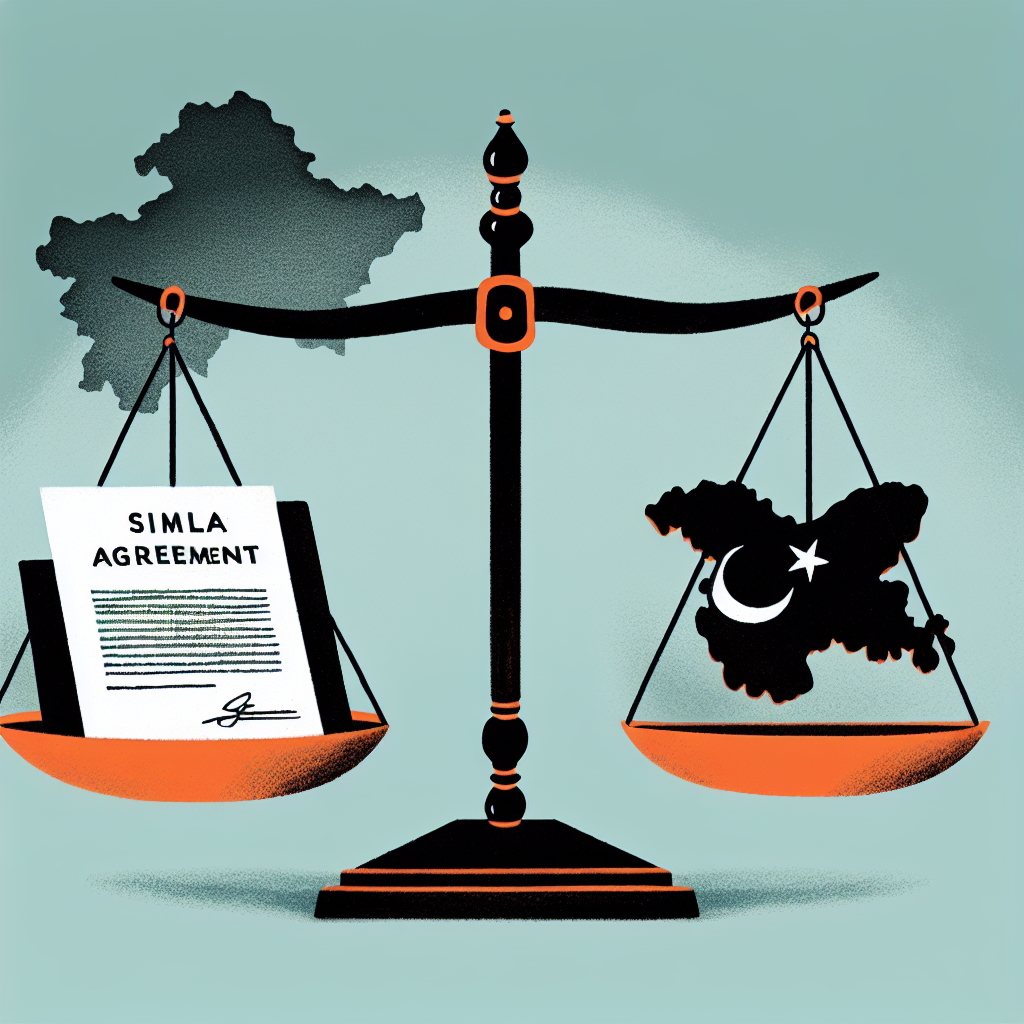The Significance of Pakistan’s Threat to Suspend the Simla Agreement Amid Kashmir Tensions
The Significance of Pakistan’s Threat to Suspend the Simla Agreement Amid Kashmir Tensions
Background of the Simla Agreement
The Simla Agreement, signed in 1972 between India and Pakistan, is a pivotal treaty aimed at maintaining peace and resolving disputes through bilateral negotiations. It was established in the aftermath of the 1971 Indo-Pakistani War, with a focus on respecting the Line of Control (LoC) in Kashmir and promoting peaceful coexistence.
Current Kashmir Tensions
Recent escalations in Kashmir have reignited tensions between India and Pakistan. The region has long been a flashpoint due to its strategic importance and the historical conflict over territorial claims. The situation has been exacerbated by political and military developments, leading to increased instability.
Pakistan’s Threat to Suspend the Agreement
Pakistan’s recent threat to suspend the Simla Agreement marks a significant shift in its diplomatic stance. This move is seen as a response to India’s actions in Kashmir, which Pakistan perceives as violations of the agreement’s terms.
- Pakistan accuses India of altering the status quo in Kashmir.
- The threat is intended to pressure India into negotiations.
- Suspension could lead to increased military tensions along the LoC.
Potential Implications
The suspension of the Simla Agreement could have far-reaching consequences for regional stability and international relations. Key implications include:
- Increased risk of military conflict between nuclear-armed neighbors.
- Potential involvement of international mediators to de-escalate tensions.
- Impact on regional alliances and geopolitical dynamics.
Conclusion
Pakistan’s threat to suspend the Simla Agreement amid rising Kashmir tensions underscores the fragile nature of peace in South Asia. The potential suspension could destabilize the region, highlighting the urgent need for diplomatic engagement and conflict resolution. As both nations navigate this complex landscape, the international community’s role in fostering dialogue and preventing escalation becomes increasingly crucial.






































